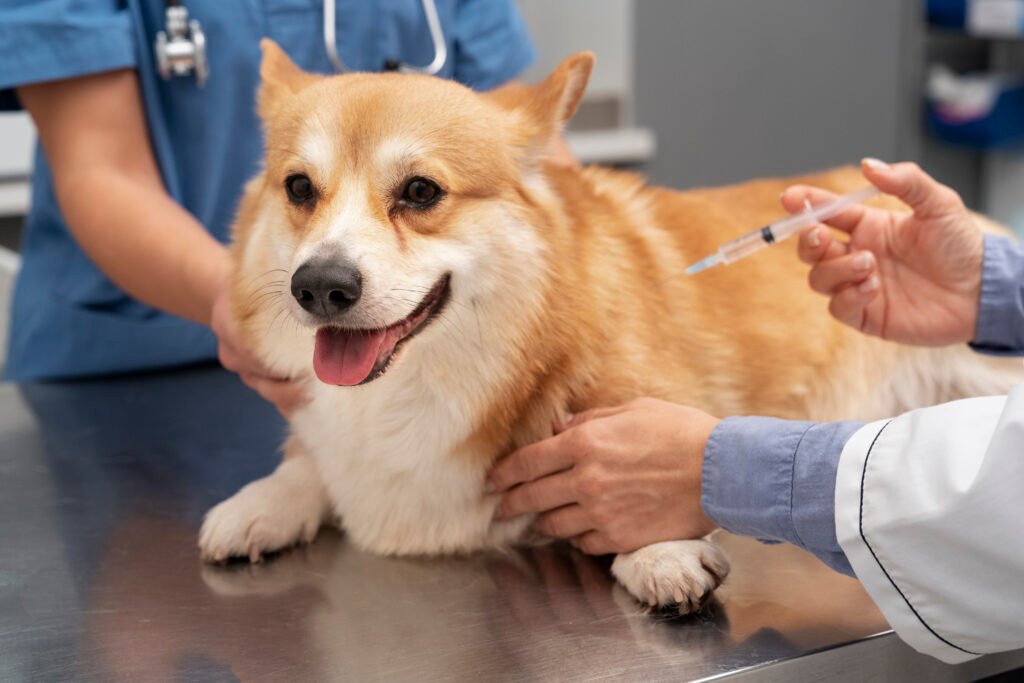
If your cat has ever had watery eyes, constant sneezing, or recurring cold-like symptoms, they may be dealing with cat herpes. Officially known as feline herpesvirus (FHV-1), this highly contagious condition is one of the most common causes of “cat flu.” While it cannot be completely cured, there are many ways to prevent flare-ups and manage symptoms so your cat can live a happy, comfortable life.
In this article, we’ll cover what cat herpes is, the symptoms to watch for, how it spreads, and both medical and natural options to support your feline friend.
What Is Cat Herpes?
Cat herpes, or feline herpesvirus, is a viral infection that primarily affects a cat’s upper respiratory system and eyes. It is one of the leading causes of feline viral rhinotracheitis (FVR), commonly referred to as “cat flu.”
There are two main viruses behind cat flu:
Feline herpesvirus (FHV-1)
Feline calicivirus (FCV)
Both are widespread among cats, especially in shelters, multi-cat homes, or stressful environments.
Symptoms of Cat Herpes
Cats infected with feline herpesvirus often show flu-like symptoms, which can become chronic. Common signs include:
Sneezing and nasal congestion
Watery or runny eyes (often red and swollen)
Discharge from the nose
Lethargy and depression
Ulcers on the eyes or tongue
Excessive drooling or salivation
Difficulty breathing due to congestion
In severe cases, kittens may have eyes that become crusted shut, requiring immediate veterinary care.
How Does Feline Herpesvirus Spread?
Cat herpes is highly contagious and spreads through:
Sneezing and coughing – releasing virus particles into the air
Direct contact with saliva, nasal discharge, or eye secretions
Shared bowls, bedding, and litter boxes
Mother-to-kitten transmission during pregnancy
Once a cat is infected, the virus remains in the body for life. Stress, illness, or environmental changes can trigger flare-ups, making management essential.
Preventing Cat Herpes
The best way to protect your cat from feline herpesvirus is through vaccination. The FVRCP vaccine (feline herpesvirus, calicivirus, and panleukopenia) is considered a core vaccine for kittens and adult cats.
Kittens typically receive the vaccine at 8 and 12 weeks of age, which significantly reduces the risk of severe infections.
Treatment and Home Care for Cat Herpes
While there is no permanent cure for cat herpes, supportive care and natural remedies can help reduce flare-ups and ease symptoms.
1. Supportive Care
Ensure your cat eats and drinks regularly.
Warm, high-protein canned food can stimulate appetite, especially since sick cats often lose their sense of smell.
Keep your cat hydrated to support immune function.
2. Increase Humidity
Congested cats breathe easier in humid environments. Options include:
Using a humidifier near their resting area.
Taking your cat into a steamy bathroom for short sessions.
3. Gentle Cleaning
Wipe away eye and nose discharge with a warm, damp cloth to keep them comfortable and prevent secondary infections.
4. Natural Remedies
Echinacea tincture (glycerin-based, not alcohol): Supports the immune system. Dose: ~5 drops, 2–3 times daily for 5–7 days.
L-Lysine: An amino acid that helps suppress herpesvirus flare-ups. Typical dosage is 100 mg twice daily. Available as veterinary supplements or mixed into food.
5. Veterinary Guidance
Antibiotics are usually ineffective against viruses but may be prescribed if secondary bacterial infections occur. Always consult your vet before starting new treatments.
Living With a Cat That Has Herpes
Cats with feline herpesvirus can live long, happy lives with proper care. The key is to:
Reduce stress at home.
Keep up with vaccinations.
Provide a healthy diet and supportive environment.
Use natural or vet-approved remedies during flare-ups.
By managing symptoms and preventing recurrences, your cat can stay healthy and comfortable.
Conclusion
Cat herpes, caused by feline herpesvirus (FHV-1), is common but manageable. While your cat may experience lifelong flare-ups, proper care, good nutrition, stress reduction, and natural remedies like L-Lysine can make a huge difference. Vaccination for kittens and regular check-ups for adults remain the best preventive measures.
With the right care, your cat can thrive despite feline herpesvirus.
For more detailed veterinary guidance, you can also check the Cornell Feline Health Center – Feline Herpesvirus.
Pravin is a tech enthusiast and Salesforce developer with deep expertise in AI, mobile gadgets, coding, and automotive technology. At Thoughtsverser, he shares practical insights and research-driven content on the latest tech and innovations shaping our world.
- Pravin Rhttps://thoughtsverse.com/author/pravin321/
- Pravin Rhttps://thoughtsverse.com/author/pravin321/
- Pravin Rhttps://thoughtsverse.com/author/pravin321/
- Pravin Rhttps://thoughtsverse.com/author/pravin321/



